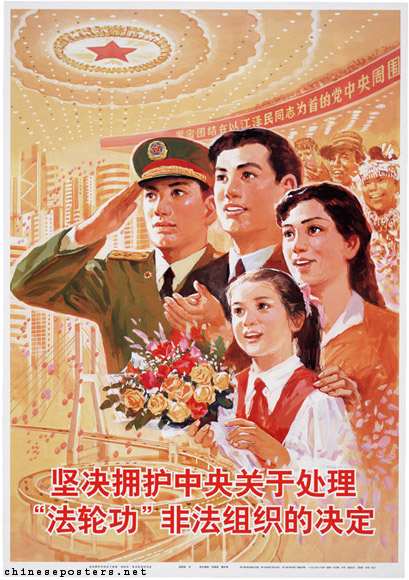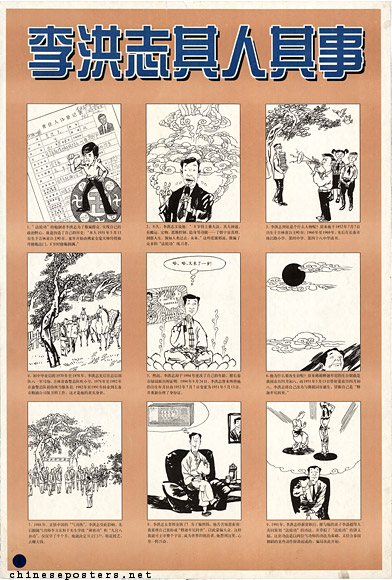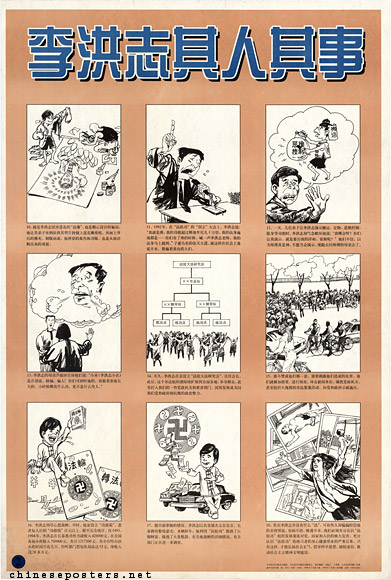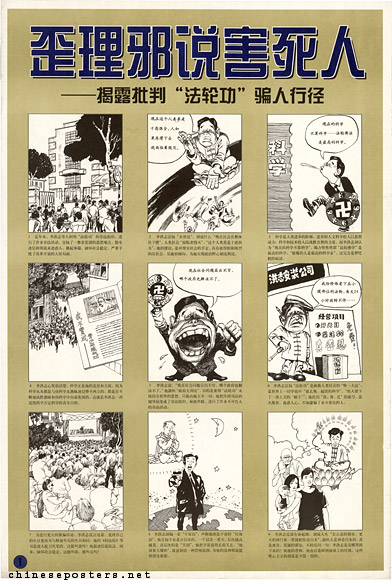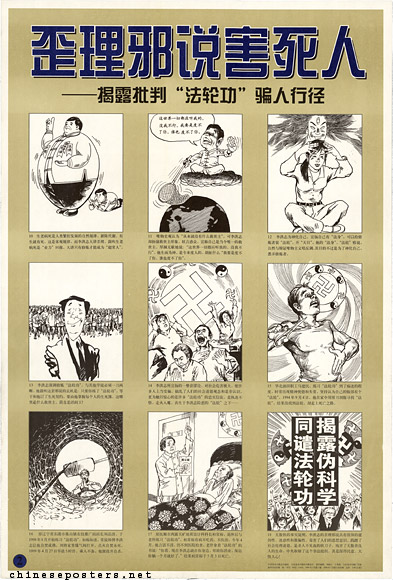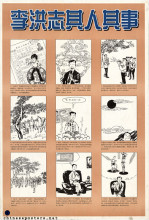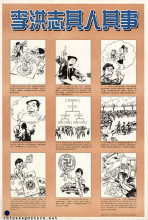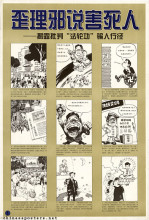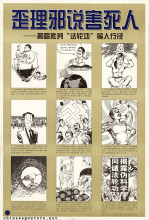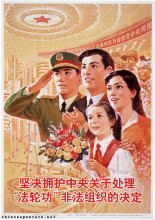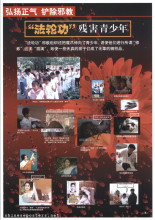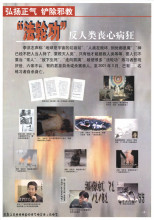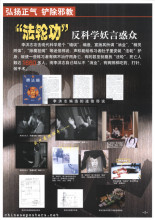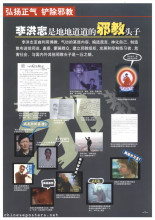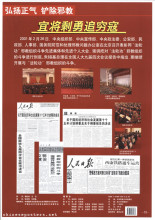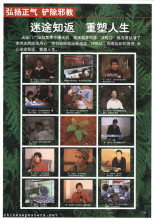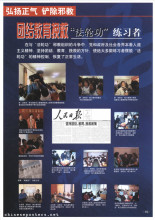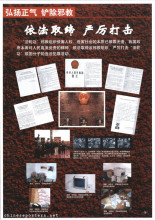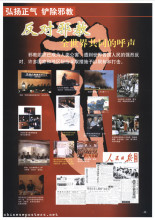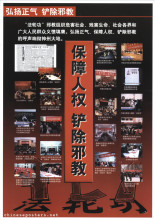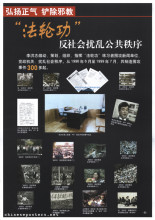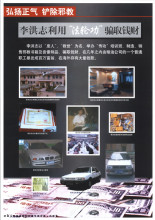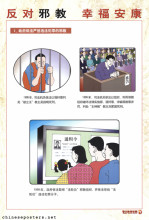The Falun Gong (法轮功, Practice of the Wheel of the Dharma) movement staged a large-scale demonstration in front of the Zhongnanhai (中南海) compound, the residence of the PRC ruling elite, on 27 April 1999. The followers of the movement demanded that the group be granted official recognition as a religious organization, as well as freedom of practice.
Falun Gong essentially involves a religious life style that includes an elaborate moral and cosmological system, as well as meditational practices based on Qigong. Practitioners stress its positive effects on their health. As a matter of fact, claims that observing the teachings of Li Hongzhi (李洪志), the founder of the group, had a curing effect on serious diseases attracted many followers for whom the steeply increasing costs of the health care system had become prohibitive.
Uphold science, eradicate superstition, 1999
No exact estimates of the size of the movement exist. It is safe to say that Falun Gong attracted followers from all age groups across the social spectrum, although the elderly and members from marginalized groups were strongly represented. To the dismay of the government, they included a number of ranking representatives of the party organization, army, security apparatus and police.
An interesting aspect of the Falun Gong is their use of modern communication media for spreading its message. The demonstration mentioned above was organized using mobile telephones and e-mail messages. The doctrine is spread through numerous Internet sites. Given this use of modern media, which the authorities are unable to monitor, as well as the popularity of the movement even within government circles, the CCP-leadership perceives the Falun Gong as a threat. Moreover, to quote Barend ter Haar, the CCP interprets the movement as a "socio-religious movement in a century-old tradition of religiously inspired rebellions, which the communist regime has always depicted as (potentially) revolutionary on the one hand, but also as a threat now that the true messianic teachings of communism..." have been realized.
Li Hongzhi, the man and his acts, part 1, 1999
Li Hongzhi, the man and his acts, part 2, 1999
To combat Falun Gong, the Party has sought recourse to propaganda techniques not seen since the Cultural Revolution. These include character assassination (of Li Hongzhi and others), cartoons reminiscent of the lampooning of class enemies, endless essays depicting the deleterious effect of the doctrine, documentaries exposing movement leaders as frauds and followers as dupes, etc. The "struggle" against Falun Gong has even resulted in a revival of the use of propaganda posters beyond merely educational or congratulary purposes. Falun Gong members undergoing "re-education through labor" were taken to the Lei Feng Memorial Hall in Liaoning Province, in order to learn from Lei’s self-sacrifices. It is difficult to assess the effects of these "countermeasures" on the popularity of the movement.
The information on this page draws heavily on Barend ter Haar’s website ![]()
China Internet Information Center, Truth on "Falun Gong"
Erik Eckholm, "Beijing Journal: A Maoist Hero’s Ghost Tilts With Falun Gong", The New York Times on the Web, 30 May 2001
Barend ter Haar, Falun Gong - Evaluation and further references
Daniel C. Lynch, After the Propaganda State - Media, Politics and "Thought Work" in Reformed China (Stanford: Stanford University Press, 1999)
Danny Schechter, Falun Gong’s Challenge to China - Spiritual Practice or "Evil Cult"? (New York: Akashic Books, 2001)
